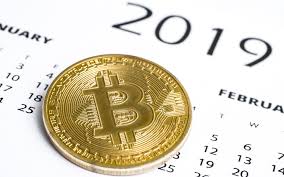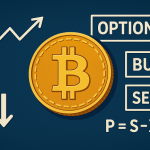Bitcoin futures contracts offer traders greater flexibility and access to leverage for greater exposure.
Futures contracts are a type of financial derivatives that allow the trader to speculate on the price movements of assets such as commodities, stock indices, or cryptocurrencies, such as bitcoin.
- Bitcoin futures contracts allow you to speculate on the price of bitcoin at a future date.
- The standardization of bitcoin futures contracts is set by each exchange.
- In addition to bitcoin futures, options and perpetual futures contracts are also traded.
- The different types of futures contracts allow traders to bet on the upside or downside.
In the case of bitcoin (BTC), a futures contract allows the trader to obtain benefits from fluctuations in its price, on a future date agreed by the parties, without necessarily having to acquire and hold the BTC.
Bitcoin futures contracts
Bitcoin futures contracts are the technical name for the best-known derivatives of this cryptocurrency. For simplicity, some also call it bitcoin futures. Bitcoin futures (BTC) are derivative contracts, or bitcoin financial instruments traded on an exchange, in which the terms and conditions of the future delivery of BTC are established.
A bitcoin Futures Contract is a legal agreement to sell or buy BTC, at a predetermined price, on a specific date in the future. This type of derivative is usually traded on a futures exchange, although major exchanges have incorporated units dedicated to futures trading. Among the specialized futures exchanges that included bitcoin futures in their offer is the Chicago Mercantile Exchange (CME), but there are other exchanges dedicated to bitcoin futures and other cryptocurrencies such as Deribit, Huobi, Binance and Kraken, among others.

The buyer of a futures contract acquires the obligation to purchase and receive the specified amount of BTC when the contract expires. The seller of the futures contract acquires the obligation to sell and deliver the specified BTC on the expiration date.
The standardization of bitcoin futures contracts is determined by each futures exchange. For example, bitcoin futures contracts on the Chicago Mercantile Exchange (CME) are for 5 bitcoin and are quoted in US dollars (USD). There is another type of contract called bitcoin microfutures, which was introduced by CME in March 2021, in which each contract corresponds to 0.1 BTC.
There are two types of bitcoin futures contracts on Binance: those denominated and settled in Tether (USDT) and those denominated and settled in BTC. For those denominated in BTC, each bitcoin futures contract costs $100, which determines the specific amount of that cryptocurrency associated with each contract at the time of purchase. The maximum exposure allowed to a trader on Binance, through bitcoin futures contracts, is 1,000 BTC.
As an example of the diversity of bitcoin futures contracts available from different derivatives exchanges, one of the contracts offered by BitMEX is equal to 1 US dollar worth of bitcoin. It is denominated in USD and settled in BTC. It is necessary to subscribe a minimum of 100 contracts, with a maximum of 1 million contracts.
First bitcoin futures contracts
The first bitcoin futures contracts were traded on the Chicago Mercantile Exchange (CME) on December 17, 2017. Subsequently, other exchanges began trading bitcoin futures contracts and also futures for other cryptocurrencies, such as Bakkt, CBOE. Conventional cryptocurrency exchanges also diversified their product offerings into Bitcoin futures contracts.
Other forms of bitcoin futures
In addition to bitcoin futures contracts, described in the previous section, there are so-called bitcoin perpetual futures, which do not have an expiration date and can be held as long as desired. There are also those with the name of futures options contracts, with mandatory conditions different from those that prevail in a conventional futures contract.
Bitcoin perpetual futures
Bitcoin perpetual futures, also called perpetual swaps, use a different mechanism to enforce price convergence at regular intervals. This is known as the funding rate, which is defined as the periodic payments between traders to bring the price of the perpetual futures contract closer to the current BTC price, or spot price.
For example, if a perpetual swap contract is trading below the spot price, the funding rate will be negative. This implies that short position holders, who are betting short, must pay long position holders.
If, on the other hand, the contract price is higher than the spot price, the funding rate will be positive and contract holders with open long positions must pay contract holders with open short positions.
In both cases, the financing rate promotes the opening of new positions that can bring the contract price closer to the spot price. In other words, traders will tend to promote contracts with a price closer to the spot price, in order to minimize the payments to be made.
Bitcoin options contracts
Finally, a third type of bitcoin futures contracts are option contracts, which allow taking short and long positions, with the difference that traders acquire the right, but not the obligation, to buy or sell bitcoin at a specific price or execution price. There are two types of bitcoin futures options: put options and call options.
Bitcoin put options give you the right, but not the obligation, to sell a specific amount of BTC at the price stipulated in the option within a certain period of time. A bitcoin put option is purchased when the trader expects the price of bitcoin to decline.
A bitcoin call option gives you the right, but not the obligation, to buy a specified amount of BTC, at a specified price, within a specified period of time. In both types of options, a commission is paid for the acquisition, called a premium. In the case of a call option, if the price declines, the most the trader can lose is the value of the premium.
How does bitcoin futures trading work?
Bitcoin futures trading has a distinctive feature compared to spot or cash trading since it does not require buying, selling, or holding BTC. Instead, futures traders buy or sell futures contracts that represent the value of bitcoin on a given date in the future.
Although futures contracts can be denominated and settled in fiat currency, there are some contracts that are settled in BTC, although this is not a necessary condition for trading bitcoin futures.
Bitcoin futures allow investors to speculate on the future value of that cryptocurrency. For example, traders can open a long position and bet on a price increase, or they can open a short position if they expect the price of BTC to retrace.
The use of leverage in futures contracts
One of the outstanding benefits of bitcoin futures is the use of leverage. Leverage is the use of loans to increase exposure to bitcoin, allowing for greater capital efficiency.
At 10x leverage, you access 10x your own capital to invest in bitcoin. If you have, for example, USD 100 in an exchange account, you can open a position of USD 1,000 in BTC.
Just as leverage can increase a trader’s profits, it can also amplify their losses if the price of bitcoin doesn’t move in the desired direction. For this reason, caution is advised when using leverage levels. For beginner traders, it is most appropriate to use a conservative 2x or 5x leverage.
Leverage as a hedge
Leverage, on the other hand, allows futures to be used as a defensive hedge for portfolios. In the event that bitcoin underperforms or moves in the opposite direction to what is expected in the spot position, a futures transaction can hedge that outcome to offset the loss. In other words, a short exposure in the spot market can be hedged with a long exposure in the futures market or vice versa.
What risks do futures contracts have and how to minimize them?
It has already been mentioned that the use of excessive leverage increases the risks of bitcoin futures trading. One of the recommended techniques as part of the risk management of futures contracts is the use of stop-loss orders, which automatically exit positions when they reach a certain percentage of losses.
It is advisable to set a hard limit when you start investing in leveraged futures contracts. For example, limit investments between 1% and 5% of your capital to open a position in futures. Some exchanges offer practice platforms to learn more about futures trading in real-time, without the need to risk real money.
Expiration of bitcoin futures contracts
When someone buys a bitcoin futures contract and holds it until the expiration date, it will be settled according to the terms of the contract. The buyer will receive from the seller the agreed amount of BTC (physical settlement) or the cash equivalent, at the agreed price.
However, the flexibility of bitcoin futures trading allows for several ways to trade the contracts. In addition to settlement at the end of the contract, the buyer has other options. You can renew the contract until another date in the future, or you can exit the position before the specified date, as specified in the figure below.
The image shows the different stages of the bitcoin futures contract when the settlement takes place on the expiration date (right side) and when the contract is settled before that date (left side). A third option is the renewal of the contract to be settled at a later date than the original expiration date (rollover).
Where are bitcoin futures traded: top exchanges
Based on daily volume traded, the top five bitcoin futures exchanges are Binance, MEXC, BTCEX, OKEx, and Bybit, according to figures from CoinMarketCap. The latter has the leadership in open interest, which is the value of open contracts that are pending settlement. After Bybit, the exchanges ranked by open interest are CoinEx, Binance, CoinTiger, and Bit.com.
In addition to those mentioned, CME, the largest exchange for futures trading of different asset classes and commodities, stands out for being the first to trade bitcoin futures, in December 2017. Other exchanges with bitcoin futures offers include Bitmex, Kraken, Huobi, Deribit and Gate.io.
The chart below shows monthly bitcoin futures volumes, in trillions of dollars, across the top 12 exchanges.
In the monthly volume chart since March 2020, a maximum of USD 2.42 trillion can be seen in May 2021. The downward trend in 2022 can also be seen, which exceeded USD 1.3 trillion in January, to conclude the month of August with USD 467,000 million. This represents a 64% drop in BTC volume in 8 months.
More information about Binance exchange Bitcoin futures contracts at the following link:
Why are bitcoin futures contracts important?
The most significant advantage of bitcoin futures contracts is that they offer exposure to bitcoin in a regulated environment. For investors, the cryptocurrency market does not have enough regulations. In the case of bitcoin futures, as explained below, there are specific regulations, which are not seen in the spot markets of that cryptocurrency.
As already mentioned, the popularity of bitcoin futures contracts is associated with the fact that they can be used in conjunction with bitcoin spot or cash trading, as part of a risk management strategy.
Bitcoin futures contracts are regulated by the Commodity Futures Trading Commission (CFTC) in the United States. This is the regulatory body that has exclusive jurisdiction over futures markets in the United States, which is why many see futures as a safe way to invest in bitcoin for the first time.








